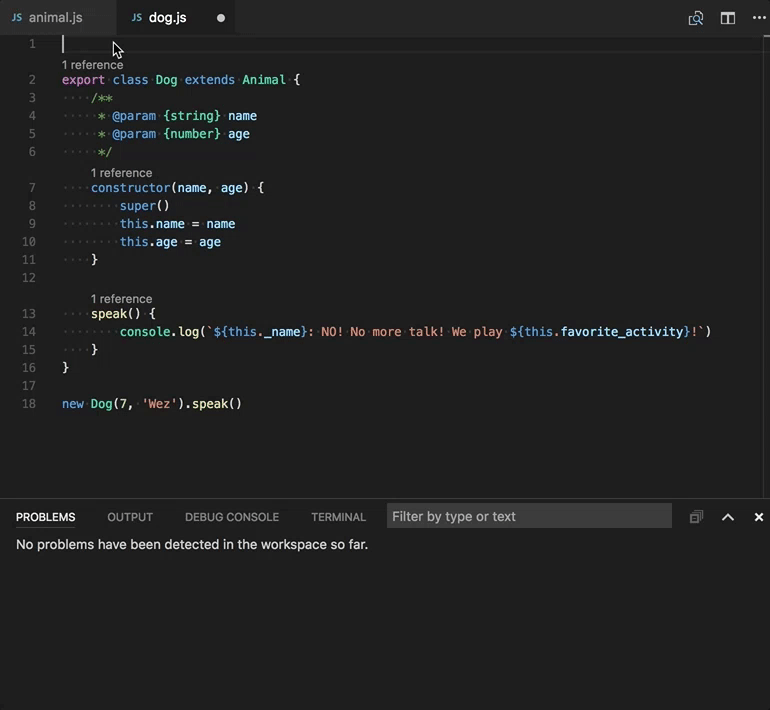
It won’t warn you if you call myInstance.pethodName() instead of thodName():

#Visual studio javascript intellisense code#
Here’s another example where the type is inferred from the usage of a variable in a class definition:Īnd additionally to type inference, VS Code will add all the unique words on the file you are editing to the intellisense dropdown:Įven though the type inference available in VS Code is very clever, it’s also very passive. The intellisense is coherent with the type of that value: Here’s an example of declaring a variable and assigning it a value. Another source is what VS Code infers from your code. TypeScript definition files are one of the sources of intellisense in VS Code. d.ts extension in that folder will contribute for what you see in the intellisense dropdown. The source of the intellisense data is from the type definition files that that are bundled with VS Code, namely console is defined in /code/resources/app/extensions/node_modules/typescript/lib/.ts.
#Visual studio javascript intellisense mac#
If you create a new index.js in VS Code and type conso followed by Ctrl+space (or the Mac equivalent) you’ll see something similar to this:

Whatever the reason for sticking with plain JavaScript, it is possible to get a nearly identical development experience in terms of having intellisense and development time error highlighting.

One of the arguments supporting this claim is that having type information helps catch a lot of mistakes that are easy to make and hard to spot.Īdopting TypeScript might not always be an option, either because you are dealing with an old codebase or even by choice. TypeScript is often described as the solution for making large scale JavaScript projects manageable.


 0 kommentar(er)
0 kommentar(er)
